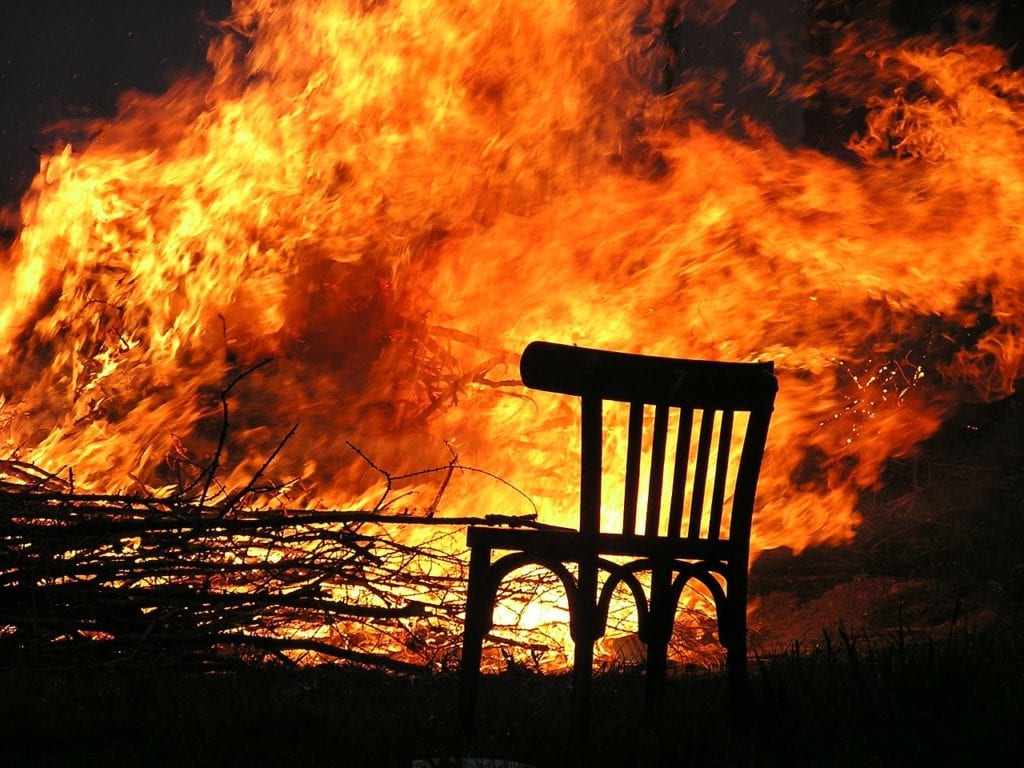
Arson is a complex crime that can be prosecuted in many different ways.
Welcome back and thanks for joining us here at The Kronzek Firm, as we continue to explore the crime of arson in Michigan. In our introductory article we explained that fact that arson can be charged in different ways in Michigan, based on the severity, location and possible injuries caused. In addition, Michigan prosecutors have wide discretion when filing criminal charges. Having broken down first and Second Degree Arson, as Michigan’s premier arson defense attorneys, we’re going to move on to the rest of the list.
Third Degree Arson:
Third Degree Arson in Michigan refers to the intentional burning of properties other than houses and homes. Any person who maliciously or willfully burns any other real property or building (including its contents) could be arrested by the police and charged by the prosecutor with Third Degree Arson. This particular charge applies when the item burned is personal property with a value of $20,000.00 or more. If the accused has a prior conviction, the minimum value of the burned property is reduced to $1,000.00.
According to the arson defense attorneys at The Kronzek Firm, Third Degree Arson is a felony, and is punishable by up to 10 years in prison, a fine of up to $20,000.00, or 3 times the value of the property (whichever is greater) or both.
Fourth Degree Arson:
Under Michigan law, Fourth Degree Arson involves the willful and malicious burning, damaging, or destroying of any personal property with a value between $1,000.00 up to $20,000.00. If the defendant has one or more prior convictions, the minimum value of the burned property is reduced to $200.00. This charge also includes willfully or negligently setting fire to prairies, woods, or grounds; and also allowing fire to spread to another individual’s property, causing any damage.
Our criminal defense team says that Fourth Degree Arson is also a felony, and is punishable by up to 5 years in prison, fines of up to $10,000.00 (or 3 times the value of the property) whichever is greater, or both.
Fifth Degree Arson:
Fifth Degree Arson is when an individual uses fire or explosives to intentionally damage or destroy personal property valued at $1,000.00 or less, and has one or more prior convictions.
Fifth Degree Arson is a misdemeanor punishable by up to 1 year in jail, a fine up to $2,000.00, (or 3 times the value of the property) whichever is greater, or both.
Although the five degrees of Arson charges cover almost all of the basics when it comes to arson charges in Michigan, there are a few other charges a prosecutor may choose to use, depending on the circumstances. For example…
Placing Inflammable Materials with the Intent to Commit Arson: This refers to anyone who “uses, arranges, places, devises, or distributes an inflammable, combustible, or explosive material, substance, liquid, or device near a building, personal property or real property with the intent to commit arson in any degree.” This charge is a misdemeanor, but the penalties and fines depend on the value of the property that was to be burned.
Carelessly Setting Fire to a Hotel: This charge is used when some is accused of ” negligent, careless, or reckless setting of a fire to a motel or a hotel, or its contents, that endangers the life or property of another person.” This is a misdemeanor and is punishable by up to 93 days in jail, a $500 fine (or 3 times the value of the destroyed property) or both.
Join us next time, for a discussion on how an insurance company’s arson investigator affects your charges, and also what burning an insured property means. Until then, if you or a loved one have been accused of setting fire to any property, or charged with any other crime in Michigan, you must call The Kronzek Firm immediately at 866 766 5245. We have decades of arson defense experience, and can help you to achieve the best outcome in your case. Remember that the right attorney is critical to your future.